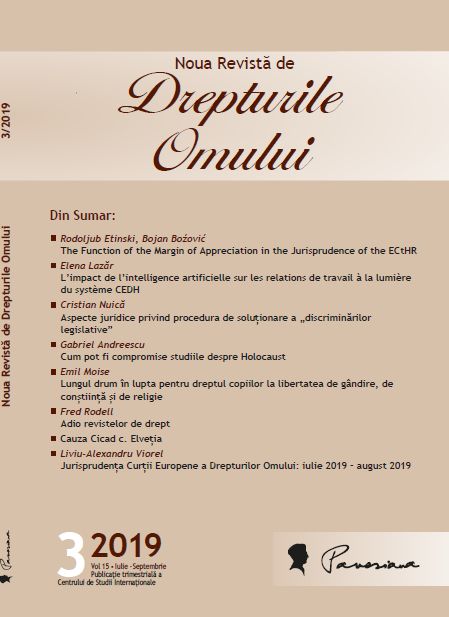The Function of the Margin of Appreciation in the Jurisprudence of the ECtHR
The Function of the Margin of Appreciation in the Jurisprudence of the ECtHR
Author(s): Rodoljub Etinski, Bojan BožovićSubject(s): Politics / Political Sciences, Law, Constitution, Jurisprudence
Published by: Centrul de Studii Internationale
Keywords: interpretation; human rights; margin of appreciation;
Summary/Abstract: The ECtHR has usually consulted various sources, including the text of the ECHR, international treaties, the comparative practice of the States and case law to collate information for replying the questions submitted by the parties. Due to various reasons, it has sometimes happened that the Court cannot find enough specific information which would enable to reply to the question. The provisions of the Convention are very general and abstract and do not address the specific issues. The issue is not governed by an international treaty or another international act. The comparative practice of the State is not enough converging in respect to the question. The case law of the Court is silent. In such situation the Court has two options. It can leave the matter to discretion of the Contracting Parties and then each of them can give a separate reply to the question. Or, the Court can create law and give its answer. The situation when the Court cannot find the reply in interpretative sources may thus result in a margin of appreciation or in judicial activism. The Court has commonly opted for the combination of the margin of appreciation and the creativity in interpretation.
Journal: Noua Revistă de Drepturile Omului
- Issue Year: 15/2019
- Issue No: 3
- Page Range: 7-26
- Page Count: 20
- Language: English

